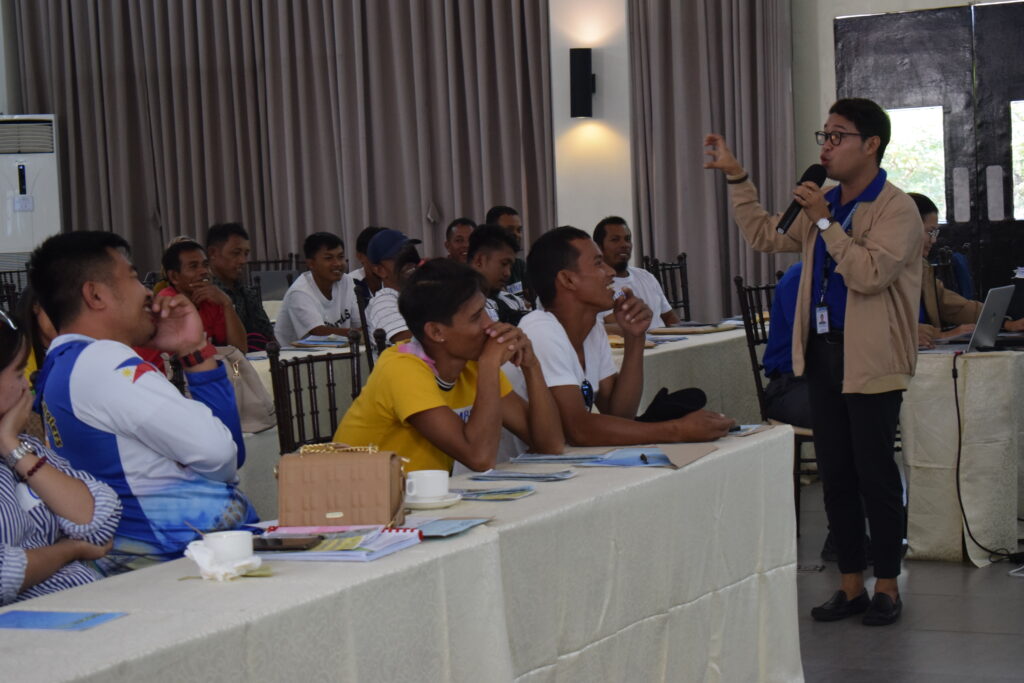Ms. Joanna Mae Padua of SFFAII, presented Tuna Tagging, she explained that it is an important scientific and
conservation practice that involves attaching small devices, such as tags or transmitters, to individual tuna fish to
track their movements, behaviors, and migrations. Biology, Morphology, and Identification of a Pelagic Species which are commonly caught by Tuna Handline Fishing Vessel and Identification of Bycatch Species were discussed by Mr.Renz Louie Lacuata and Mr. Neil Crusis of SFFAII.
In abidance with the mandate on the installation of vessel monitoring system, the participants underwent User Training on Vessel Monitoring System and Electronic Report System, facilitated by Mr. Elagano Yatoy., Jr. Aquaculturist of BFAR 12. Moreover, Mr. Edison Pesario also from BFAR 12 presented the proper catch documentation, estimation and reporting in Handline Logsheet.
All discussed topics during the Capacity Building are part of the important principles to secure a Marine Stewardship Council’s (MSC) Certificate. To profoundly understand MSC, CPCC Project Yaman Gensan:Pranticipants during the Capacity Building for Commercial Handline fishers Coordinator Mr. Keven Lloyd Dipay facilitated the orientation on Marine Stewardship Council, its importance, and process of obtaining MSC Certificate. Mr. Dipay explained that Marine Stewardship Council’s (MSC) eco-labeling program has a significant role in transforming seafood markets by creating demand for sustainable products and nowadays, retailers, restaurants, and consumers,choose to purchase MSC-certified seafood in support to sustainable fisheries.
Overall, the Capacity Building Workshop for the Commercial Tuna Handliners was a success and to formally end the program, CPCC Vice President Engr. Justine Trisha Contreras acknowledged the time and effort spared by all the participants. She also commend the efforts of all the speakers for sharing their knowledge and expertise.


